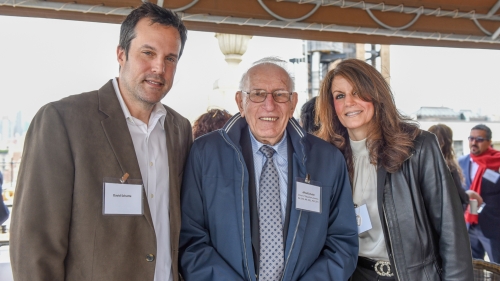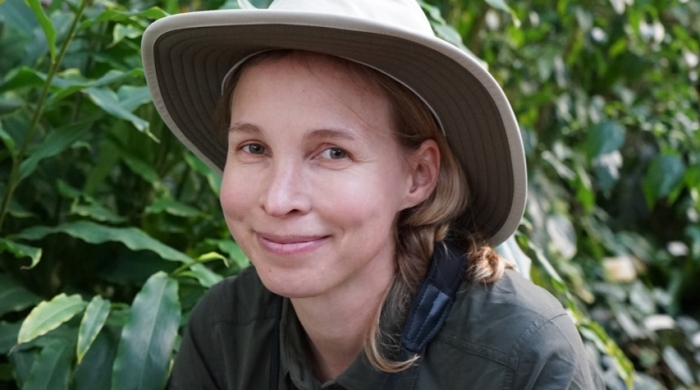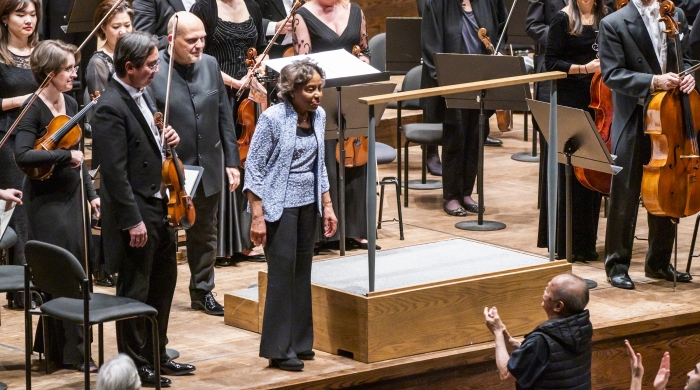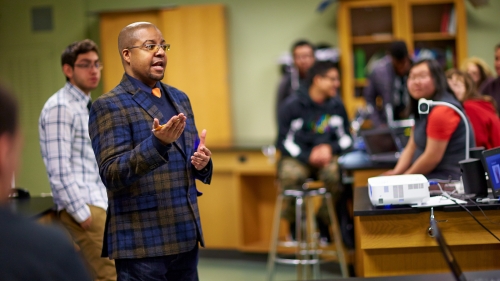Alfred Schutte’ (BA ’50, MA ’51, PhD ’71) has spent a lifetime ensuring that students of many kinds and in many places receive the best education possible.
The child of two immigrants from Gottschee, Austria, a farming village, Schutte’ grew up in Astoria, Queens during the Depression. His father worked different jobs, from chauffeur to butcher, and his mother helped the family hone their English language skills by studying comic strips in the newspapers, as well as their young son’s workbooks from the local public elementary school. One of the many serendipitous moments in Schutte’s life came when his father was offered a job in Forest Hills and moved the family there with him.
“Forest Hills was a great school, and I met a lot of youngsters who were really gung-ho about studying,” says Schutte’. “I took a lot of influence from them.”
Schutte’ did well in his studies throughout high school; he particularly excelled in the sciences, in part due to having renowned educator Dr. Paul F. Brandwein for biology. “When there was no room in class, people would stand in the back to watch him teach,” remembers Schutte’. “He’s my favorite teacher even to this day, and he inspired my love of science.”
At the urging of Forest Hills’ Assistant Principal, Renee Fulton, Schutte’ was encouraged to apply to college at NYU, even though he wasn’t sure if his family would be able to afford classes. “My father was making $45 a week in 1945, and classes were something like $12 a credit,” recalls Schutte’. “I’m not sure what kind of strings Ms. Fulton pulled, but they made it work.”

Alfred Schutte’ (center) with son David and daughter Kristin.
Schutte’ began taking classes at NYU during the summer semester – technically one day before he even graduated from high school. His father encouraged him to sign up for the fall semester as well, during which Schutte’ was drafted for World War II. He left in January of 1946 for Sagami Bay in Japan; with the war now officially over, Schutte’ served as a medic checking for diseases among US military, civilians, and Japanese soldiers returning from China, Korea, and other locations.
“I raised my hand to be a medic because of my interest in biology, but there was no training,” says Schutte’. “I wrote my mother a letter and asked her to send my book from Dr. Brandwein’s special ‘Lab Technics’ class, and that’s how I taught myself everything I needed to know.”
Schutte’ always intended to return to NYU, so when his military service ended in March of 1947, he re-enrolled under the GI Bill – along with 47,000 other discharged servicemen.
Another serendipitous moment in Schutte’s life occurred while speaking about embryonic development in front of his anthropology class. “After I finished my presentation, my professor asked me if I’d ever thought about becoming a teacher,” says Schutte’. “That moment changed my life.”
With 70 credits of pre-med work already under his belt, Schutte’ switched his major over to education. While earning his master’s degree at NYU, Schutte’ student taught at Sewanhaka High School in Floral Park, New York, where he also received an unusual opportunity to serve as a substitute 10th-grade biology teacher for one week at a neighboring school called Garden City.
“I got my first paycheck for $25 for that week and I gave it to my parents,” says Schutte’.
After graduating with his master’s, Schutte’ remained at Sewanhaka for seven years before applying for a position at a brand-new high school called Herricks being built in New Hyde Park. When Schutte’ arrived for the interview, he realized that the new principal was the same one from his one-week Garden City job all those years before. “He told me I was hired right there on the spot,” says Schutte’. “Another serendipity.”
Schutte’ worked for Herricks for several years before switching gears entirely to help the Long Island Rail Road develop a training school for their engineers and signal operators. “There was never a hesitation,” says Schutte’. “When it came to education, I was there. No matter what it was, I knew I could do it.”
In the 1960s, Schutte’ returned to NYU for his doctoral degree, writing his dissertation on “microteaching” – or making space in the classroom for students to comment and ask questions rather than the lecture format that was typical at the time – a concept that is highly prevalent in educational design today. After completing his PhD, Schutte’ used microteaching as an adjunct professor at both Hofstra University and Adelphi University.
Schutte’ received the NYU Founders’ Day Award in 1972. When Dr. Jonas Salk was honored by the March of Dimes in New York in 1982, Schutte’ was also honored for his 10 years of service in running the Birth Defects Seminar for outstanding Long Island students. When Schutte’ retired from Long Island's Wantagh High School in 1985, he received a legislative resolution from the New York State Legislature for his contribution to public education.
Schutte’s varied career continued, however, and included creating classroom materials to accompany episodes of a PBS docuseries called “Connections;” running career education programs for the New York State Education Department; and traveling to Israel, Egypt, and the Bahamas for the United Nations Development Programme to see how education funding was being spent abroad. Closer to his second retirement in the early 2000s, Schutte’ traveled in the US as part of the Schools of Excellence Program – a position that earned him and the program’s other site visitors an invitation as honored guests of President George Bush at the White House.
As a science educator, Schutte’s greatest thrill has been meeting three outstanding scientists of the 20th century: two-time Nobel Prize winner Dr. Linus Pauling; Dr. James Watson, who won the Nobel Prize in 1962 for discovering the molecular structure of DNA; and Dr. Jonas Salk, who developed one of the first successful polio vaccines.
The COVID-19 pandemic brought an end to Schutte’s 22-year volunteering role with students in New York's Suffolk County to help them bridge the gap between education and the workforce; he was 92 at the time. Now, at age 96, he lives in Malverne, New York, with his daughter, Kristin, and his son, David. He recently contributed a series of personal historical effects to NYU’s University Archives, such as books, files, and other life experience items.
Related Articles
2023 Baccalaureate Ceremony Dorothy Height Awardee: Haley Mellin (PhD ’12)
Haley Mellin is an artist, conservationist, and Dorothy Height Distinguished Alumni Award winner.
2023 Valedictory Ceremony Dorothy Height Awardee: Tania León (BS ’71, MM ’75)
Tania León is an internationally renowned composer/conductor and Dorothy Height Distinguished Alumni Award winner.
2023 Doctoral Convocation Dorothy Height Awardee: Carmen Guillén Fariña (BS ’65)
Carmen Fariña is the former chancellor of the New York City Department of Education and Dorothy Height Distinguished Alumni Award winner.




